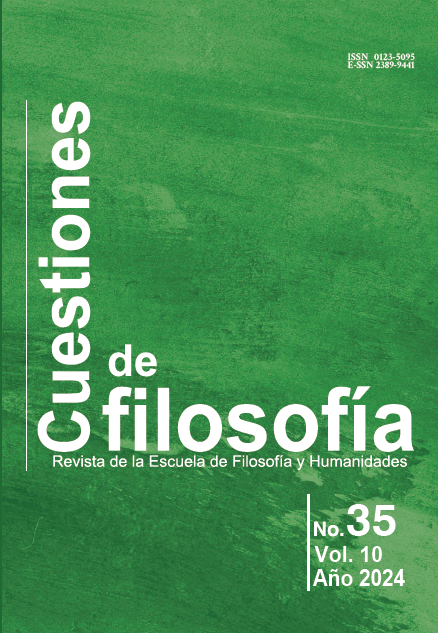Algorithmic as a theotechnique

Abstract
The algorithm is a central element for understanding contemporary society. Beyond its technical meaning, it highlights its ghostly place in public discourse, by naming efficient automatisms that reinforce inequality and discrimination based on race, gender and social class. An ambivalent interplay of efficiency and reinforcement of the unjust social order, of technological transparency and opacity, shows it as a theotechnique. It is a dramaturgical device of narratives and images that is justified by the effectiveness of its technical action and is therefore seen as objective and neutral. This device implies a series of strategies that are analyzed in the article: the promotion of an invisible efficiency, the installation of interfaces that connect with the operational; the extractivism of behaviors and data; human and machinic biases. Theotechnique refers to the algorithmic as the subject of these social strategies that name the epistemological difficulty for a fair and egalitarian political stance.
Keywords
Algorithm, beliefs, imaginary, biases, data extractivism
References
- AlgoRace (Des)Racializando la IA (2022). Una Introducción a la IA y la discriminación algorítmica para movimientos sociales. www.algorace.org
- Arora, P. (2016). The Bottom of the Data Pyramid: Big Data and the Global South. International Journal of Communication, 10, pp. 1681-1699. https://ijoc.org/index.php/ijoc/article/view/4297/1616
- Anders, G. (2011). La obsolescencia del Hombre. Sobre el alma en la época de la segunda revolución industrial. Vol. 1. (J. Monter Pérez, Trad.). Valencia: Pre-textos.
- Bucher, T. (2016). The algorithmic imaginary: exploring the ordinary affects of Facebook algorithms. Information, Communication & Society, 20 (1), pp. 30-44. https://doi.org/10.1080/1369118X.2016.1154086
- Burrell, J. (2016). How the machine ‘thinks’: Understanding opacity in machine learning algorithms. Big Data & Society, 3 (1). https://doi.org/10.1177/2053951715622512
- Cabrera, Altieri D. (2021). El algoritmo como imaginario social. ZER: Revista de Estudios de Comunicación Komunikazio Ikasketen Aldizkaria, 26 (50), pp. 125-145. https://doi.org/10.1387/zer.22206
- Cardon, D. (2018). Con qué sueñan los algoritmos. Nuestras vidas en el tiempo de los big data (A. Dávila, Trad.). Madrid: Dado Ediciones.
- Crawford, K. (2022). Atlas de la inteligencia artificial. Poder política y costos planetarios (F. Diaz Klaassen, Trad.). Buenos Aires: Fondo de Cultura Económica.
- Durand, C. (2021). Tecnofeudalismo. Crítica a la economía digital (V. Goldstein, Trad.). Adrogué: La Cebra / Donostia: Kaxilda.
- Eubanks, V. (2021). La automatización de la desigualdad. Herramientas de tecnología avanzadas para supervisar y castigar a los pobres (G. Deza, Trad.). Madrid: Capitan Swing.
- Finn, E. (2018). La búsqueda del algoritmo. Imaginación en la era de la informática (H. Castells Albareda, Trad.). Barcelona: Alpha Decay.
- Fuller, M. (Ed.) (2008). Software Studies. A Lexicon. The MIT Press. https://doi.org/10.7551/mitpress/7725.003.0002
- Giedion, S. (1978). La mecanización toma el mando (E. Riambau i Sauri, Trad.). Barcelona: Editorial Gustavo Gili.
- Gillespie, T. (2016). Algorithm. P. Benjamin (Ed.), Digital Keywords. A Vocabulary of Information, Society and Culture (pp. 19-30). Princeton: University Press.
- Goffey, A. (2008). Algorithm. M. Fuller (Ed.), Software Studies: A Lexicon (pp.15-20). Cambridge (Massachusetts) / London: The MIT Press.
- Graeber D. (2005). Fetishism as social creativity: Or, Fetishes are gods in the process of construction. Anthropological Theory, 5 (4), pp. 407-438. https://doi.org/10.1177/1463499605059230
- Hill, R. K. (2016). What an Algorithm Is? Philosophy and Technology, 29, pp. 35-59. https://doi.org/10.1007/s13347-014-0184-5
- Louridas, P. (2023). Algoritmos (C. Gual Marquést, Trad.). Santa Cruz de Tenerife: Melusina.
- Manovich, L. (2013). El software toma el mando (Y. García Porres, Trad.). Barcelona: UOC.
- Morozov, E. (2016). La locura del solucionismo tecnológico (N. Piñeiro, Trad.). Buenos Aires: Katz.
- National Institute of Standars and Technology (25 de noviembre de 2023). Dictionary of Algorithms and Data Structures. https://xlinux.nist.gov/dads/
- O’Neil, C. (2017). Armas de destrucción matemática. Cómo el big data aumenta la desigualdad y amenaza la democracia (V. Arranz de la Torre, Trad.). Madrid: Capitán Swing.
- Ong, W. (2011). Oralidad y escritura. Tecnologías de la palabra (A. Scherp, Trad.). Buenos Aires: Fondo de Cultura Económica.
- Parikka, J. (2021). Una geología de los medios (C. Kozak, Trad.). Buenos Aires: Caja Negra.
- Pasquinelli, M. y Joler, V. (2021). El Nooscopio de manifiesto. La inteligencia artificial como instrumento de extractivismo del conocimiento. La Fuga, 25, pp. 1-20. http://lafuga.cl/el-nooscopio-de-manifiesto/1053
- Perseus Encyclopedia (2023). G. R. Crane (Ed.), Perseus Digital Library. Tufts University. https://www.perseus.tufts.edu/hopper/
- Silva, T. (2022). Racismo algorítmico: inteligência artificial e discriminação nas redes digitais. Sao Paulo: Edições Sesc.
- Sloterdijk, P. (2022). Hacer hablar al cielo. La religión como teopoesía (I.Reguera, Trad.). Madrid: Siruela.
- Srnicek, N. (2018). Capitalismo de plataformas (A. Giacometti, Trad.). Buenos Aires: Caja Negra.
- Stiegler, B. (2002). La técnica y el tiempo II. La desorientación (B. Morales Bastos, Trad.). Hondarribia: Hiru.
- Striphas, T. (2015). Algorithmic culture. European Journal of Cultural Studies, 18 (4-5), pp. 395-412. https://doi.org/10.1177/1367549415577392
- Velasco Fuentes, P. y Venturini, J. (2021). Decisiones automatizadas en la función pública en América Latina. Una aproximación comparada a su aplicación en Brasil, Chile, Colombia y Uruguay. Derechos Digitales; Asociación para el progreso de las comunicaciones (APC). https://ia.derechosdigitales.org/wp-content/uploads/2021/03/CPC_informeComparado.pdf
- Zuazo, N. (2018). Algoritmos y desigualdades. La responsabilidad de las empresas, los gobiernos y la sociedad civil para que las decisiones automatizadas no afecten a los derechos fundamentales de las personas en América Latina. Derechos Digitales; Asociación para el progreso de las comunicaciones (APC). https://www.derechosdigitales.org/wpcontent/uploads/algoritmo_desigualdad_cast.pdf
- Zuboff, S. (2020). La era del capitalismo de la vigilancia (A. Santos, Trad.).Barcelona: Paidós.